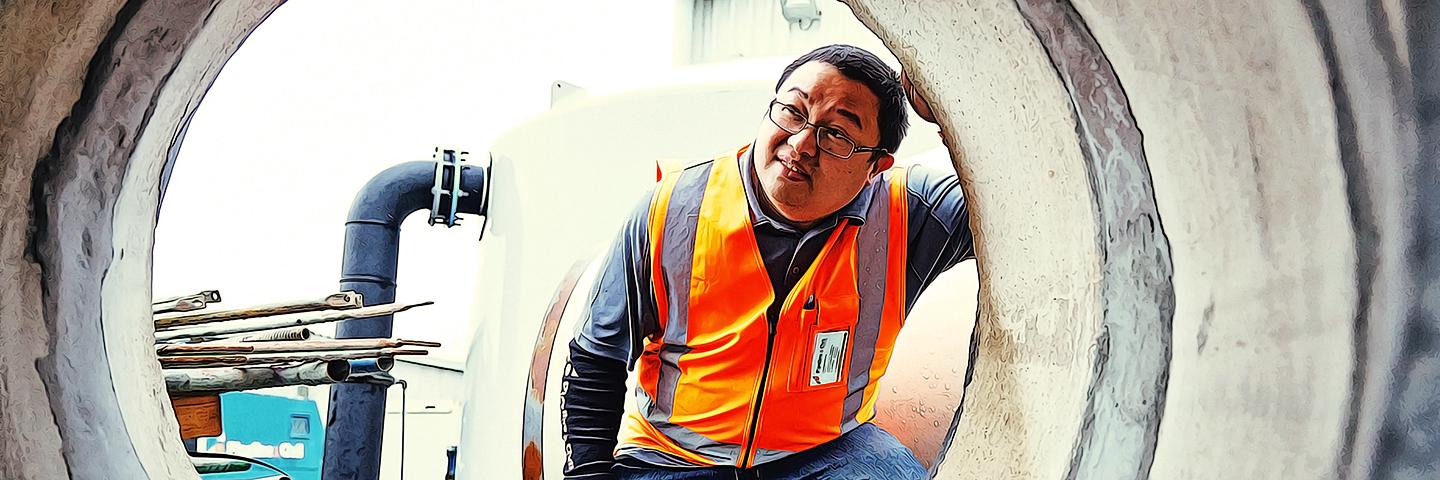Explore your options
From motorways and airports to bridges and tunnels, civil engineers design, plan and oversee the building of structures that keep our cities moving. They also deal with pollution, traffic congestion and other environmental problems.
Study civil engineering and you’ll learn how to choose the best materials, tools and techniques for civil construction projects. You’ll explore computer modelling software and practice your civil and structural drafting skills. You’ll get opportunity to have field trips to new high-rise development, water and waste treatment sites, geological sites, and so on.
Unitec offers diploma and degree programmes in Civil Engineering with specialisations in either structural, geotechnical, roading, water and wastewater, and environmental. We are the only institute to offer all 5 specialisations in this programme. Many of our staff are Chartered Professional Engineers and members of Engineering New Zealand, with a wealth of industrial experience between them. This means you will learn current best practice, which is one of the reasons why there are Unitec graduates now in senior roles in New Zealand and across the globe.
Programmes and study path
| PROGRAMME | LEVEL | DURATION | CAREER OPTIONS | START DATES |
|---|---|---|---|---|
| New Zealand Certificate in Study and Employment Pathways (Level 3) | 3 | Full-time for 16 weeks or part-time options available | Entry into further study at certificate or diploma level. | February or July |
| New Zealand Certificate in Study and Employment Pathways (Level 4) – Engineering | 4 | Full-time for 16-weeks or part-time options available | This programme prepares you for study toward a career in engineering | February or July |
| New Zealand Diploma in Engineering (Civil) | 6 | Full-time for two years or part-time options available | Civil or structural engineering employment with a civil engineering consulting practice Civil or structural engineering employment with a civil engineering contractor Engineering laboratory operation and management Site and project engineer | February or July |
| Bachelor of Engineering Technology (Civil) | 7 | Full-time for three years or part-time options available | Civil engineer (design) Civil engineering project and/or construction manager Geotechnical engineer Roading-transportation engineer Structural engineer Water/environmental engineer | February or July |
Industry connections
Unitec works closely with lots of the big players in civil engineering. The companies below are just some of the organisations that offer great career opportunities when you study civil engineering. Our New Zealand Diploma (Civil) and our Bachelor of Engineering Technology (Civil) programmes are recognised internationally through the Dublin Accord and Sydney Accord respectively, and as such your qualifications are accepted in most of the countries throughout the world.
Work experience
Study civil engineering and you could meet representatives from top civil engineering companies during guest lectures or at employers’ nights. This could mean holiday work, scholarships, internships, cadetships or a job once you graduate.
